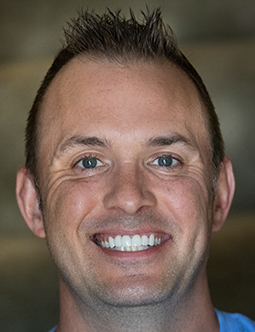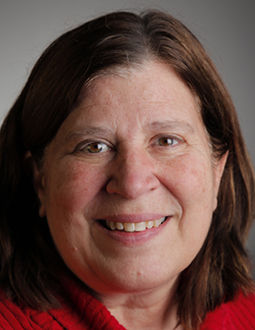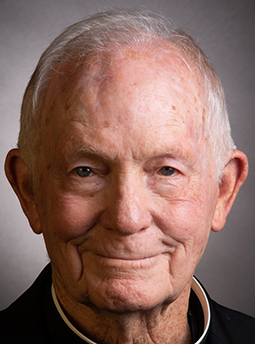A vodka tonic. A glass of wine.
It didn’t matter what it was. Charlie Backer frequently turned to alcohol after a stressful day at work. Just a little something to unwind in the evening.
He’d never been exposed to a “drinking culture,” as he described it. But Backer began noticing something that set him apart from others.
“Other people could drink alcohol and they could stop,” he said. “For me, when I was going out with friends, I couldn’t flip that switch off. It got to the point where I tried to quit, and I couldn’t.”
‘I turned everything over to God’
 BackerBacker has now been sober for four-and-a-half years. Through his journey, he started his own company, Hot Charlie’s, featuring homemade hot sauce. He also created The Charlie Backer Podcast, in which he spoke about his personal experiences with sobriety and mental health.
BackerBacker has now been sober for four-and-a-half years. Through his journey, he started his own company, Hot Charlie’s, featuring homemade hot sauce. He also created The Charlie Backer Podcast, in which he spoke about his personal experiences with sobriety and mental health.
Backer is not alone in his experience with alcohol addiction. Research has shown people who experience stress often report increased alcohol consumption and misuse. Alcohol also is the third-leading preventable cause of death in the United States, according to the National Institute on Alcohol Abuse and Alcoholism. Excessive drinking has been associated with increased violence, crime, poverty, sexually transmitted diseases, and other significant public health harms.
At first, Backer blamed his alcohol use on work, finances, or just the social pressures of hanging out with friends. “But I realized I was drinking to numb my own issues with depression and anxiety,” he said. “I abused and used to self-medicate.”
He turned to counseling and intervention. Things would improve, but then he’d ultimately fall back into the same pattern. “I would be sober a few months, and then I thought, ‘I could have a drink, I’ll be fine.’”
One night after processing some personal issues, Backer turned to drinking and then drove. He ran into a utility pole — no one else was involved in the accident — was arrested and spent the night in jail.
As he was preparing to be released the next morning, a man being held alongside him asked Backer what he was in for.
The cellmate, who was suspected of attempted murder, told him: “You should be grateful to God — you get a new day.”
When Backer’s wife picked him up from the justice center, his thought gravitated toward having a drink. That’s when he realized: “That accident should be my ‘Saul’ moment,” he said. “That’s when I turned everything over to God.”
Realizing that while counseling and programs had somewhat helped — but kept producing the same results — Backer turned toward his relationship with God through spiritual direction. “I told God, ‘I don’t know what to do. I’m afraid I can’t do it, but I’m afraid the next time I could die in a car accident.’” He began to make the connection between the evil forces and the temptations he faced.
The spiritual
component of
addiction
 GuentherLooking at the issue of addiction through the lens of faith can reveal the possibility that a demonic force is exacerbating human weaknesses, said Jane Guenther, director of the archdiocesan Catholic Renewal Center.
GuentherLooking at the issue of addiction through the lens of faith can reveal the possibility that a demonic force is exacerbating human weaknesses, said Jane Guenther, director of the archdiocesan Catholic Renewal Center.
“If I have a weakness, then the Evil One is going to take advantage of it the best he can,” said Guenther, who has been a spiritual advisor to people dealing with addiction. “We say that the demon doesn’t cause the first drink. But the first drink opens the door to the Devil, making it worse, so to speak.”
Sometimes people who are under the care of a mental health professional will also seek out spiritual direction, in recognition that while there is a psychological predisposition to the addiction, “a diabolical force is keeping them bound,” Guenther said. She assists them in using their baptismal power to “renounce the spirit of addiction that is keeping (them) bound.”
Guenther said that the Catholic Renewal Center’s Healing and Deliverance Ministry addresses addiction from a spiritual component. Those who seek the help of the ministry desire to live Jesus’ promise of abundant life and have decided to act righteously, but are experiencing blockages or bondages. They also may feel unable to overcome negativity, fear, sorrow, anxiety, grief, resentment, habitual sin and compulsions, even though their minds understand that their behavior is not right or healthy. In these persistent trials, evil spirits may be at work.
“We have had people who have gone to confession for years about addictions they know they’re forgiven from, but they still say, ‘I don’t feel free,’” Guenther said. “Through the prayers of deliverance, the movement goes past the knowledge.”
Seeking the Spirit
 Msgr. GriesedieckIn Msgr. Edmund Griesedieck’s family of eight, six dealt with alcohol addiction, including him. Growing up in the 1950s, he was exposed to a prevalent heavy drinking culture even in high school, which exacerbated the disease that some of his family members dealt with. (Plenty of research has shown evidence that alcoholism is a complex genetic disease, often affecting families.)
Msgr. GriesedieckIn Msgr. Edmund Griesedieck’s family of eight, six dealt with alcohol addiction, including him. Growing up in the 1950s, he was exposed to a prevalent heavy drinking culture even in high school, which exacerbated the disease that some of his family members dealt with. (Plenty of research has shown evidence that alcoholism is a complex genetic disease, often affecting families.)
After ordination in 1965, Msgr. Griesedieck continued to turn toward drinking, but he felt he had the ability to limit himself. “It was a question of, can you take it or leave it with relative ease?” he said.
“We’re not talking about possession, here, but more spiritual warfare — like temptation, obsession, lust, addiction, etcetera. In the name of the Lord, you ask for His deliverance.”
Certain situations involving alcohol became more noticeable. Then there was a funeral he showed up to officiate, while under the influence. (“It was a scandal,” he later recalled of the incident, which took place almost 50 years ago.) Msgr. Griesedieck was recommended to an inpatient treatment program, later followed up by outpatient support.
Now decades sober, Msgr. Griesedieck spiritually counsels people who face addictions. He stressed that other addictions, such as overeating, pornography, and drug use, can also be addressed from the spiritual realm. The priest said he wishes more priests would consider offering deliverance prayers in the sacrament of reconciliation.
“As a confessor, if you hear habitual sins that people are doing that sound like addiction, in prudence, you should offer a deliverance prayer,” he said. “We’re not talking about possession, here, but more spiritual warfare — like temptation, obsession, lust, addiction, etcetera. In the name of the Lord, you ask for His deliverance.”
Other programs, such as Alcoholics Anonymous, draw connections to the spiritual element in a way that is inclusive of various religious and spiritual influences. Jesuit Father Edward Dowling wrote an article in 1953 examining the parallels between the 12 steps of Alcoholics Anonymous and the Ignatian Spiritual Exercises. Father Dowling, a friend of A.A. founder Bill Wilson, said Wilson recognized that the 12 steps help release a person from the things that prevent his or her will to choose “God as I understand Him.”
“A.A. uses terms ‘the God of my understanding’ or ‘higher power,’ which is a loose term to describe something out of themselves,” Msgr. Griesedieck said. “If they’re Catholics, they will connect with our faith traditions and the Trinity,” he said.
With addictions, sometimes “there’s a point where my willpower is not enough,” Msgr. Griesedieck said. “I need an advocate — I need the Holy Spirit. For me, and many people, we have a devotion to the Holy Spirit, and seek Him to enlighten and empower me.”
>> Alcoholism and the pandemic
The COVID-19 pandemic has contributed to increased alcohol consumption, according to a study published in the December 2020 issue of the International Journal of Environmental Research and Public Health. The study noted that the pandemic has caused medical, psychological and sociological problems, including increased alcohol consumption and related harms from such consumption.
Researchers noted that individuals in China who were quarantined or worked in high-risk locations during the 2003 SARS epidemic were more likely to use alcohol as a coping mechanism and was associated with “increased alcohol abuse/dependence symptoms” three years after the outbreak.
Similarly, adults in New York City with post-traumatic stress disorder two years after the 2001 attacks on the World Trade Center also reported increased alcohol use and binge drinking.
The the emergence of COVID-19 may have had a significant impact on alcohol consumption and related harms, but the longer-term effects are still mainly unknown. Major findings from the December 2020 study include:
• Participants who experienced COVID-19-related stress (versus not) reported consuming more drinks and a greater number of days drinking.
• 60% reported increased drinking, while 13% reported decreased drinking, compared to pre-COVID-19.
• Reasons for increased drinking included increased stress (45.7%), increased alcohol availability (34.4%) and boredom (30.1%).
• Participants who reported being stressed by the pandemic consumed more drinks over a greater number of days.
“Alcohol Consumption during the COVID-19 Pandemic: A Cross-Sectional Survey of US Adults” www.stlreview.com/3Benur4
Resources
Catholic Renewal Center (including Healing and Deliverance Ministry, and information on finding a spiritual director): www.archstl.org/catholic-renewal-center
Saint Louis Counseling: saintlouiscounseling.org
Alcoholics Anonymous: www.aa.org
Ignatian Spiritual Exercises and the 12 steps of AA: www.ignatianspirituality.com/the-spiritual-exercises-and-the-12-steps/
National Institute on Alcohol Abuse and Alcoholism: www.niaaa.nih.gov
Beloved, do not trust every spirit but test the spirits to see whether they belong to God, because many false prophets have gone out into the world.
This is how you can know the Spirit of God: every spirit that acknowledges Jesus Christ come in the flesh belongs to God,
and every spirit that does not acknowledge Jesus does not belong to God. This is the spirit of the antichrist that, as you heard, is to come, but in fact is already in the world.
You belong to God, children, and you have conquered them, for the one who is in you is greater than the one who is in the world.
They belong to the world; accordingly, their teaching belongs to the world, and the world listens to them.
We belong to God, and anyone who knows God listens to us, while anyone who does not belong to God refuses to hear us. This is how we know the spirit of truth and the spirit of deceit.